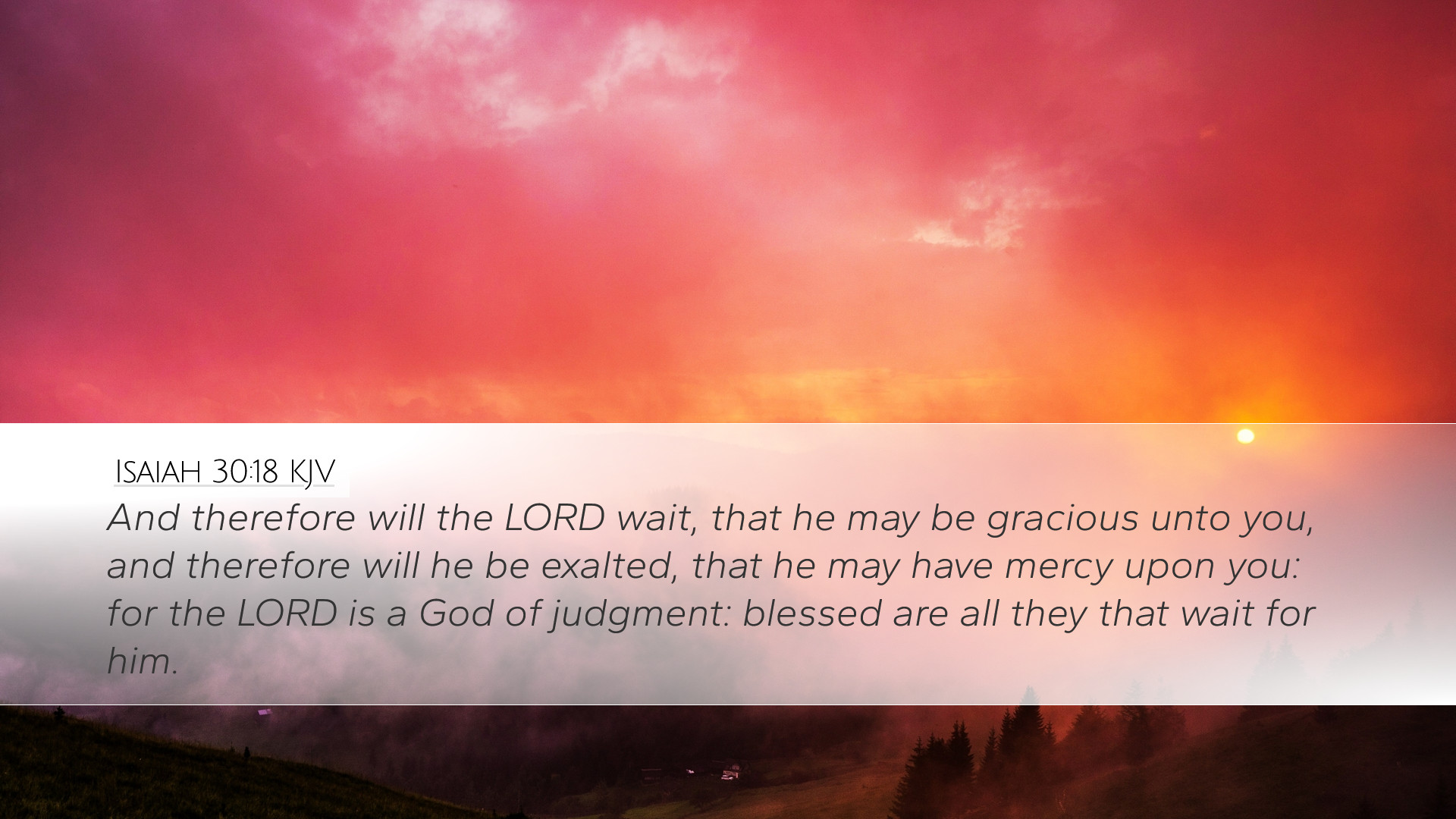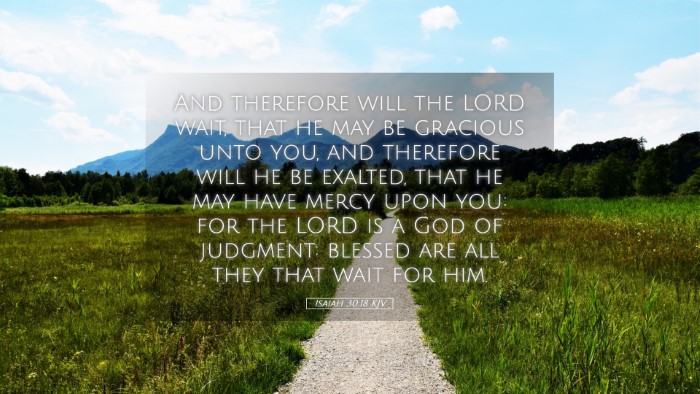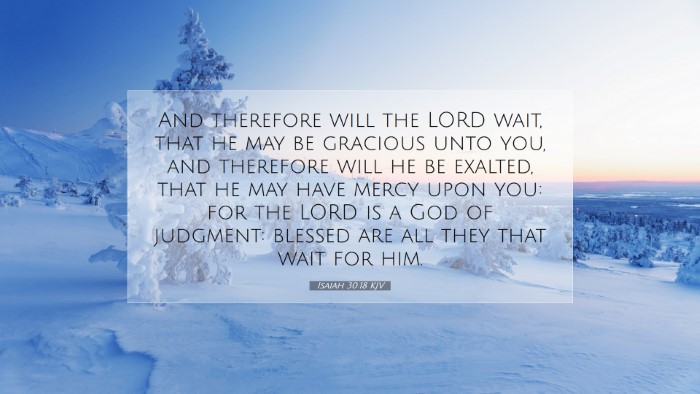Commentary on Isaiah 30:18
Isaiah 30:18 states, "Yet the Lord longs to be gracious to you; therefore he will rise up to show you compassion. For the Lord is a God of justice. Blessed are all who wait for him." This verse encapsulates a profound theological insight into the character of God as well as His relationship with humanity, particularly within the context of Israel's rebellion and their dependence on divine grace.
Overview
This commentary will explore the themes of grace, justice, and the blessedness of waiting on the Lord, drawing on insights from renowned biblical scholars and commentators.
The Nature of God’s Longing for His People
Isaiah 30:18 brings to light the heart of God in His attitude towards His people amidst their failings. The phrase "the Lord longs to be gracious to you" emphasizes divine earnestness and compassion. The term "longs" reflects a deep emotional investment from God — it is an active desire that seeks not only legal rectification but relational restoration.
-
Matthew Henry remarks that this longing indicates God's readiness to pardon transgressions and embrace those who return to Him, displaying His nature as a loving Father.
-
Albert Barnes highlights that God's graciousness is not based solely on human merit but rests on His divine mercy, reiterating that in times of distress, turning back to God initiates His gracious action.
-
Adam Clarke further elaborates that God's inclination towards grace stands in stark contrast to human propensity for rebellion, suggesting that grace is ever available for those willing to receive it.
The Rise of Compassion
The statement "he will rise up to show you compassion" is indicative of God's action-oriented nature. Here are some key insights:
-
According to Matthew Henry, God's rising signifies a proactive stance — God does not remain passive in the face of human suffering but actively seeks to alleviate it.
-
Adam Clarke observes that this compassion is transformational, suggesting that when God shows compassion, it leads to a deeper sense of restoration and unity with Him.
-
Albert Barnes emphasizes that the action of rising up implies immediately attending to the needs of the afflicted ones, showcasing God's attentive nature towards the plight of His people.
The Justice of God
Isaiah 30:18 concludes with the declaration, "For the Lord is a God of justice." This essential characteristic of God must be understood in conjunction with His grace. The justice of God implies the following:
-
According to Matthew Henry, God’s justice serves as the foundation for His grace. It is through His justice that sin is acknowledged, and thus the mechanisms of grace can operate in the guise of mercy and forgiveness.
-
Albert Barnes posits that God's goodness and justice manifest in His desire for His people to turn from their ways, ensuring that grace does not negate righteousness but fulfills it.
-
Adam Clarke clarifies that God's justice does not exclude compassion but rather enhances it. God's actions are always in line with His holy nature, balancing justice with mercy.
The Blessedness of Waiting on the Lord
The final phrase, "Blessed are all who wait for him," carries significant weight in understanding the believer’s posture towards God. The act of waiting signifies trust and expectation:
-
Matthew Henry explains that waiting is an active engagement — it encompasses prayer, hope, and an anticipative spirit aligned with God's timing.
-
Albert Barnes points out that this waiting is ultimately rewarding, as those who place their faith in the Lord are assured of God's gracious intervention.
-
Adam Clarke adds that the blessed state of those who wait relies on their understanding of God's faithfulness, which reminds the believer of the hope found in His promises.
Theological Implications
This verse serves as a profound reminder for contemporary faith communities:
-
The intersection of grace and justice in God's character reminds believers that while God is just, He is also innately relational and gracious.
-
The call to wait on God encourages a community that holds together the tension of hope and anticipation for God's actions amidst adversity.
-
This creates a framework for understanding divine providence where faith is demonstrated not in mere belief, but in active waiting for God's timing and response.
Conclusion
Isaiah 30:18 encapsulates the heart of God towards His people – a longing for grace, a commitment to compassion, a foundation of justice, and the blessedness of those who await His deliverance. As we reflect on this verse, may it inspire all who study it to experience God's grace personally, affirm His justice, and embody a spirit of expectant waiting. It offers a guiding light for pastors, students, theologians, and scholars alike, calling them to reflect on these truths in their ministries and personal lives.


